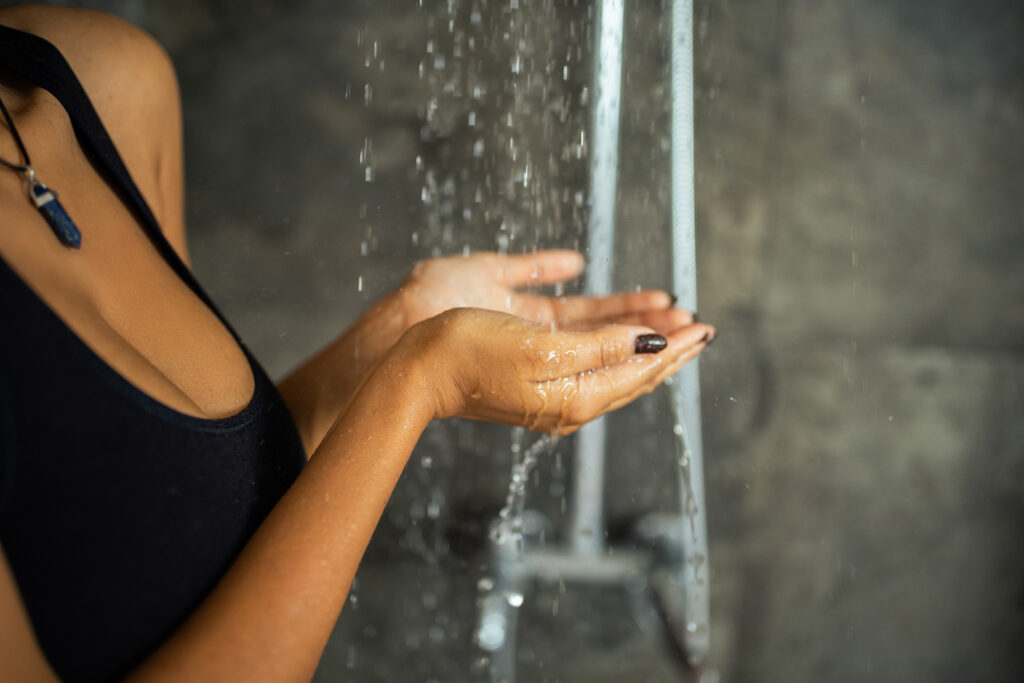Chlorine has long been used as a disinfectant in public water supplies, playing a crucial role in preventing waterborne diseases. While its importance in maintaining safe drinking water is undeniable, the presence of chlorine in shower water can have less desirable effects on our health and home environment. As awareness grows about the potential drawbacks of chlorine exposure during showers, many homeowners are exploring ways to reduce chlorine levels in their shower water. Let’s delve into the reasons why this is beneficial and the methods available to achieve cleaner, chlorine-reduced shower water.
Understanding Chlorine in Water
Chlorine is added to municipal water supplies as a powerful disinfectant, effectively killing harmful bacteria and microorganisms. This process has been instrumental in dramatically reducing the incidence of waterborne diseases in developed countries. However, while chlorine levels in drinking water are strictly regulated to ensure safety, the same chlorine can become problematic when heated and vaporized during a shower. When water is heated, chlorine can convert into chloroform and other trihalomethanes (THMs), which are then released into the air and can be inhaled or absorbed through the skin.
Health Implications of Chlorine Exposure
Exposure to chlorine and its byproducts during showering can have various health implications. The most immediate and noticeable effects are often on the skin and hair. Chlorine can strip the natural oils from skin and hair, leading to dryness, irritation, and even exacerbating conditions like eczema or psoriasis. For hair, this can result in dullness, brittleness, and color fading for those with dyed hair. More concerning are the potential long-term health effects of inhaling chlorine vapors. Some studies suggest that regular exposure to chlorine and THMs may be associated with an increased risk of certain respiratory issues and, in more extreme cases, may have carcinogenic potential.
Benefits for Skin and Hair
Reducing chlorine in shower water can have immediate and noticeable benefits for skin and hair health. Without the drying effects of chlorine, many people report softer, more moisturized skin and hair that feels healthier and looks more vibrant. For those with sensitive skin or existing skin conditions, the reduction in chlorine can lead to less irritation and fewer flare-ups. Swimmers, who are often exposed to high levels of chlorine, can particularly benefit from having chlorine-reduced water at home to help counteract the effects of pool water on their skin and hair.
Improving Indoor Air Quality
An often-overlooked benefit of reducing chlorine in shower water is the improvement in indoor air quality. As mentioned earlier, when chlorine is heated, it can vaporize and release chloroform and other THMs into the air. These compounds can linger in the bathroom and spread to other areas of the home. By reducing chlorine levels, you’re not just improving the quality of your shower water, but also the air you breathe in your home. This can be particularly beneficial for individuals with respiratory sensitivities or conditions like asthma.
Methods for Reducing Chlorine in Shower Water
There are several effective methods for reducing chlorine levels in shower water. One popular option is the use of shower head filters. The Luxury 10-Mode High Pressure Filtered Shower Head is an excellent example of a product that combines filtration with a versatile shower experience. These filters typically use activated carbon or KDF (Kinetic Degradation Fluxion) media to remove chlorine and other impurities from the water as it passes through the shower head.
Another approach is the installation of a whole-house water filtration system. While more comprehensive and costly, this method ensures that all water entering your home, not just your shower water, is filtered. For those looking for a more targeted solution, vitamin C filters have gained popularity. Vitamin C (ascorbic acid) is effective at neutralizing chlorine and can be incorporated into shower head filters or used as shower bath balls.
Environmental Considerations
Reducing chlorine in your shower water isn’t just beneficial for your health; it also has positive environmental implications. Chlorine and its byproducts can be harmful to aquatic life when they enter water systems through drainage. By reducing the amount of chlorine in your shower water, you’re also reducing the amount that eventually makes its way back into the environment. Additionally, many chlorine-reducing solutions, like the MineralStream Black shower head, are designed with eco-friendly materials and principles in mind, further contributing to environmental sustainability.
Long-term Cost Benefits
While there may be an initial investment in chlorine-reducing technology for your shower, the long-term benefits can outweigh the costs. Reduced chlorine levels can lead to less need for moisturizing products for skin and hair, potentially saving money on personal care items. Additionally, by protecting your skin and hair from the drying effects of chlorine, you may find that you need fewer treatments or products to maintain healthy skin and hair. There’s also the potential for savings on healthcare costs related to respiratory issues or skin conditions that may be exacerbated by chlorine exposure.
Implementing Chlorine Reduction in Your Home
Implementing a chlorine reduction strategy in your home doesn’t have to be complicated or expensive. Starting with a quality shower head filter is often the most accessible and immediate way to reduce chlorine exposure during showers. When choosing a filter, look for options that are easy to install and maintain, with clear indicators for when the filter needs to be replaced. It’s also worth considering the overall design and functionality of the shower head, as products like multi-mode shower heads can enhance your shower experience while providing the benefits of chlorine reduction.
For those considering a whole-house solution, consulting with a water treatment professional can help you understand the best options for your specific water quality and household needs. They can provide water testing services and recommend appropriate filtration systems based on your water composition and usage patterns.
In conclusion, reducing chlorine in your shower water offers a range of benefits for health, home, and the environment. From improved skin and hair health to better indoor air quality and environmental considerations, the advantages are clear. By taking steps to reduce chlorine exposure during showers, you’re investing in your personal well-being and contributing to a healthier home environment. Whether you opt for a simple shower head filter or a more comprehensive whole-house solution, the benefits of chlorine-reduced shower water can significantly enhance your daily routine and overall quality of life.


